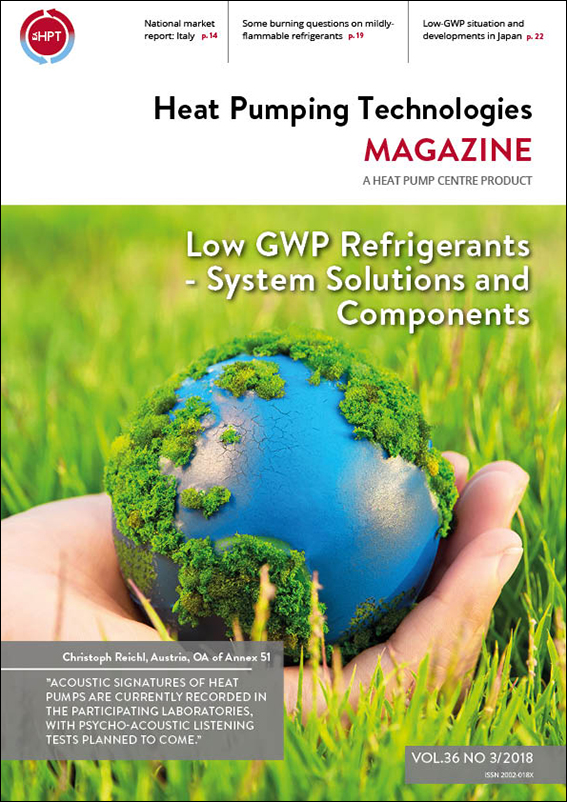|
|
 |
 |
Climate change is going on around us, across the world, and there is also no doubt that we need to tackle it. The deployment of heat pumping technologies is one way to do this, leading to energy efficiency and reduction of CO2 emissions. Unfortunately, the refrigerants currently used in heat pumps have a high global warming potential (GWP) and are thus themselves potent climate gases. There are also refrigerants with significantly lower GWP, both such that have been known for a long time and more recently developed ones. Some of these come with another challenge: they are flammable to different degree, which needs to be dealt with.
Below is a list of articles included in the Magazine. The articles in bold can also be found further down, in versions shortened by the HPC.
- Heat Pump Conference in Jeju 2020
- HPT TCP welcomes two new Annexes
- Illegal refrigerant sales challenge the F-gas Regulation
- Annexes in HPT TCP: 49, 51
- Market Report: Heat pump market report for Italy
- Seven burning questions about mildly-flammable refrigerants
- Low-GWP refrigerants for refrigeration and air-conditioning systems in Japan
- Performance of centrifugal chiller and development of heat pump using low-GWP refrigerant
- New ways of combining Heat Pumps and District Heating
Read the full HPT Magazine here.
Don't forget to visit our website for news, the latest updates and more information.
|
|
|
|
|
|
|
|